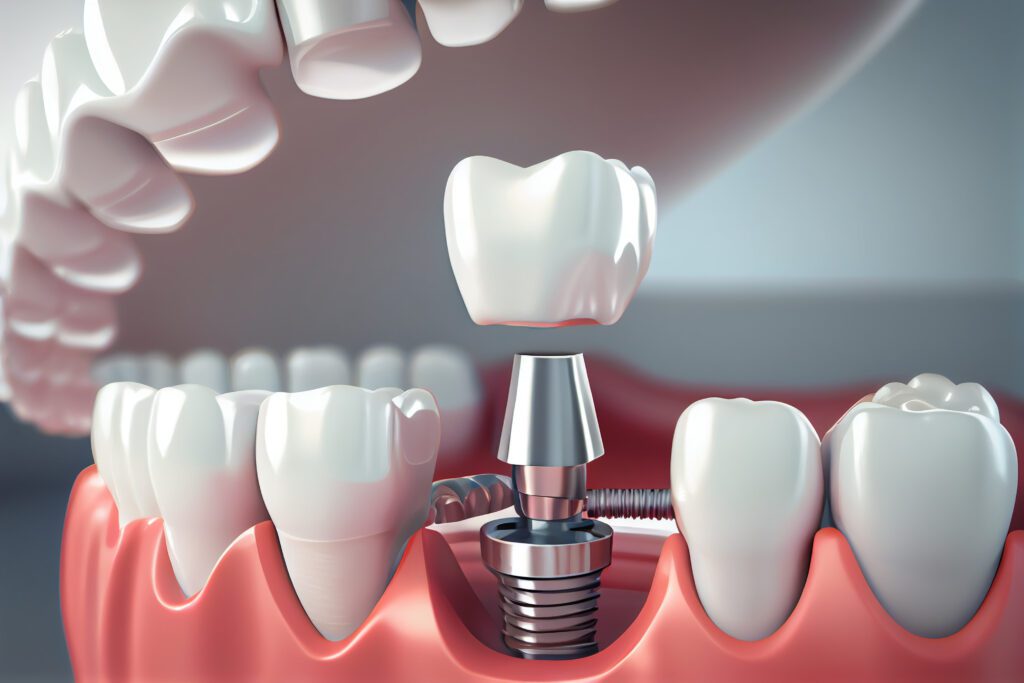People often say that dental implants are a long-term fix. They use them to replace missing teeth. But just how long can you expect them to last? This article explores the durability of dental implants. It also gives tips to make them last longer.
Understanding Dental Implants
Dental implants are small titanium posts. They replace the roots of missing teeth. Surgeons insert them into the jawbone. They provide a permanent base for fixed, replacement teeth. Dental implants are not like dentures or bridges. They mimic the function and feel of natural teeth. They are designed to last for many years.
The Lifespan of Dental Implants
Dental implants can last a lifetime if properly cared for. But, their lifespan can vary based on many factors. Typically, the titanium post itself can remain in place for over 30 years. However, the crown may need replacing every 10 to 15 years. This is due to normal wear and tear.
Factors That Influence Longevity
1. Quality of Care and Maintenance
The lifespan of your dental implants largely depends on how well you look after them. Regular brushing and flossing, along with routine dental check-ups, are essential. Like real teeth, implants need consistent care. This care prevents infections and ensures longevity.
2. The Skill of Your Dentist
The expertise of the dentist performing the implant surgery is crucial. A skilled dentist can place an implant well. It fits perfectly, works well, and lasts longer. It’s important to choose a dentist with a proven track record in implant dentistry.
3. Your Overall Health
Your general health affects how well your dental implants integrate with your jawbone. Conditions like diabetes or osteoporosis can impact the stability of implants. Smoking is particularly detrimental as it impairs bone healing and can significantly reduce the longevity of a dental implant.
4. Bone Quality
The amount and quality of bone in your jaw also play a vital role in the success of implants. A lack of sufficient bone can lead to implant failure. Your dentist might recommend a bone graft. This is if your jawbone isn’t thick enough to support an implant.
Ensuring Your Implants Last
Routine Dental Visits
Visit your dentist every six months for a check-up and cleaning. These visits allow your dentist to check your implants. They help catch issues early.
Proper Oral Hygiene
Brush twice a day. Floss daily. Use an antibacterial mouthwash. It keeps your mouth free of harmful bacteria. Remember, while implants can’t decay. But, the gums around them can get inflamed or infected without proper hygiene.
Avoid Hard Foods
While dental implants are strong, they are not indestructible. Avoid chewing hard items such as ice or hard candy, which can damage the crown and your natural teeth.
Quit Smoking
If you smoke, quitting is one of the best things you can do for the health of your implants. Smoking restricts blood flow to the gums. This can slow healing of your dental implant.
Conclusion
Dental implants are a fantastic, long-lasting solution for tooth loss. With the right care and a bit of diligence, your implants can serve you well for decades. Remember, dental implants’ longevity is not just about the procedure. It’s also about how well you care for them after surgery.
By understanding the factors that affect their lifespan. And by following your dentist’s advice on care and maintenance. You can enjoy a healthy, beautiful smile for many years.
Ready to Enhance Your Smile?
At Cove Dental and Implant Centre, we’re committed to providing you with top-notch dental care in a comfortable and friendly environment. Whether you’re considering dental implants or need expert advice on maintaining existing implants, our team is here to help. Contact us today to schedule your consultation and take the first step towards a beautiful, lasting smile.





